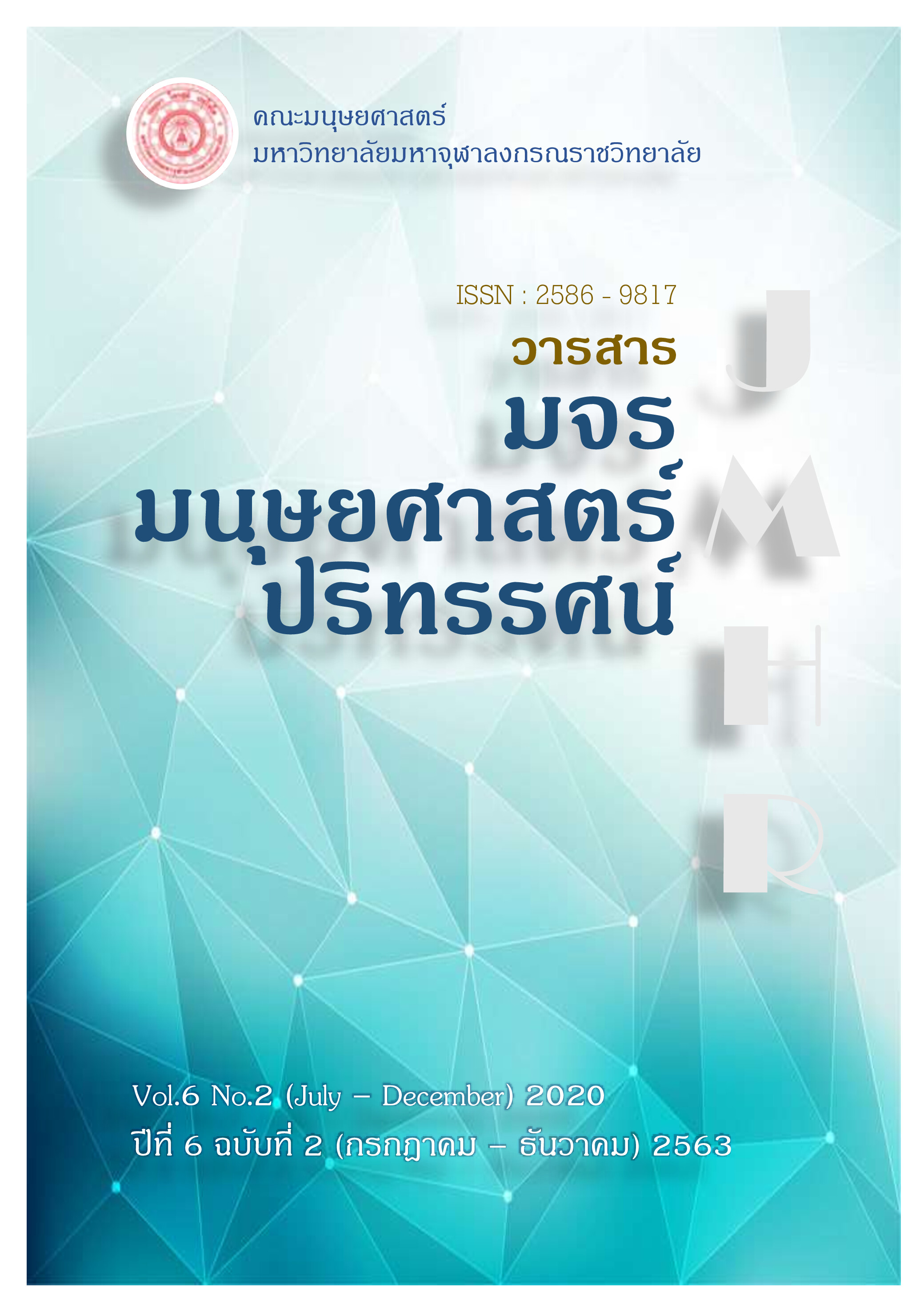The English–speaking Abilities of Bachelor of Arts Students of Faculty of Humanities, Mahachulalongkornrajavidyalaya University, Ubon Ratchathani Campus, Thailand
คำสำคัญ:
English-speaking, English Abilitiesบทคัดย่อ
This study focuses the English-speaking abilities of students, the objectives of this research were study the English-Speaking Abilities and analyze the English-Speaking Abilities of Bachelor of Arts students of Faculty of Humanities, Mahachulalongkornrajavidyalaya University, Ubonratchathani Campus. The researcher mixed quantitative and qualitative methods. The questionnaire used for collecting quantitative data from 40 students in academic year 2019-2020 and in-depth interview used for collecting qualitative data from 10 key informants. Statistics include Percentage, Mean and Standard Deviation
The results of the research found that:
The results of data analysis for lack of confidence in English speaking of the students, resulting at overall at moderate level for mean 3.34. The students had no shyness in English speaking resulted in overall at moderate level for mean 3.24. In pronunciation, the students using mother tongue in English-speaking and understanding resulted in overall at moderate level for mean 3.49. The results of data analysis for vocabulary that causes the students to feel anxious about their ability to properly use English vocabulary, resulting in overall at moderate level for mean 3.20. And the students had ability in English speaking, resulting in overall at 3.24.
The following discovered from interview with key informants. The most students had the English-speaking ability were: The students had limited vocabulary for English speaking, the students had improved pronunciation when they spoke in English, the students were sure about their pronunciation and understanding when a person spoken, the students needed practice with foreigners for a confidence in English-speaking. And then some students had a little problems on pronouncing not clear, after that they had practice to pronounce to right sound.
เอกสารอ้างอิง
Burnkart, H. D. (1998). Spoken language: What it is and how to teach it. Retrieved January 15, 2020, from http://www.nclrc.org/essentials/speaking/goalsspeak.htm.
Crystal, D. (2003). English as a Global Language. Cambridge: Cambridge University Press.
Florez, Marry A. C. (1999). Improving Adult English Language Learners’ Speaking Skills. New York: National Center for ESL Literacy Education.
Louma, S. (2014). Motivating Students’ Speaking Skill through Simulation in English for Specific Purpose”. 1st Mae Fah Luang University Interactional Conference, Chiang Rai: Mae Fah University.
Nazara, Situju. (2011). Students’Perception on EFL Speaking Skill Development. Journal of English Language Teaching. 1 (1): 28-43.
Richard, Jack C. (1995). The Language Teaching Matrix. NY: Cambridge University Press.






